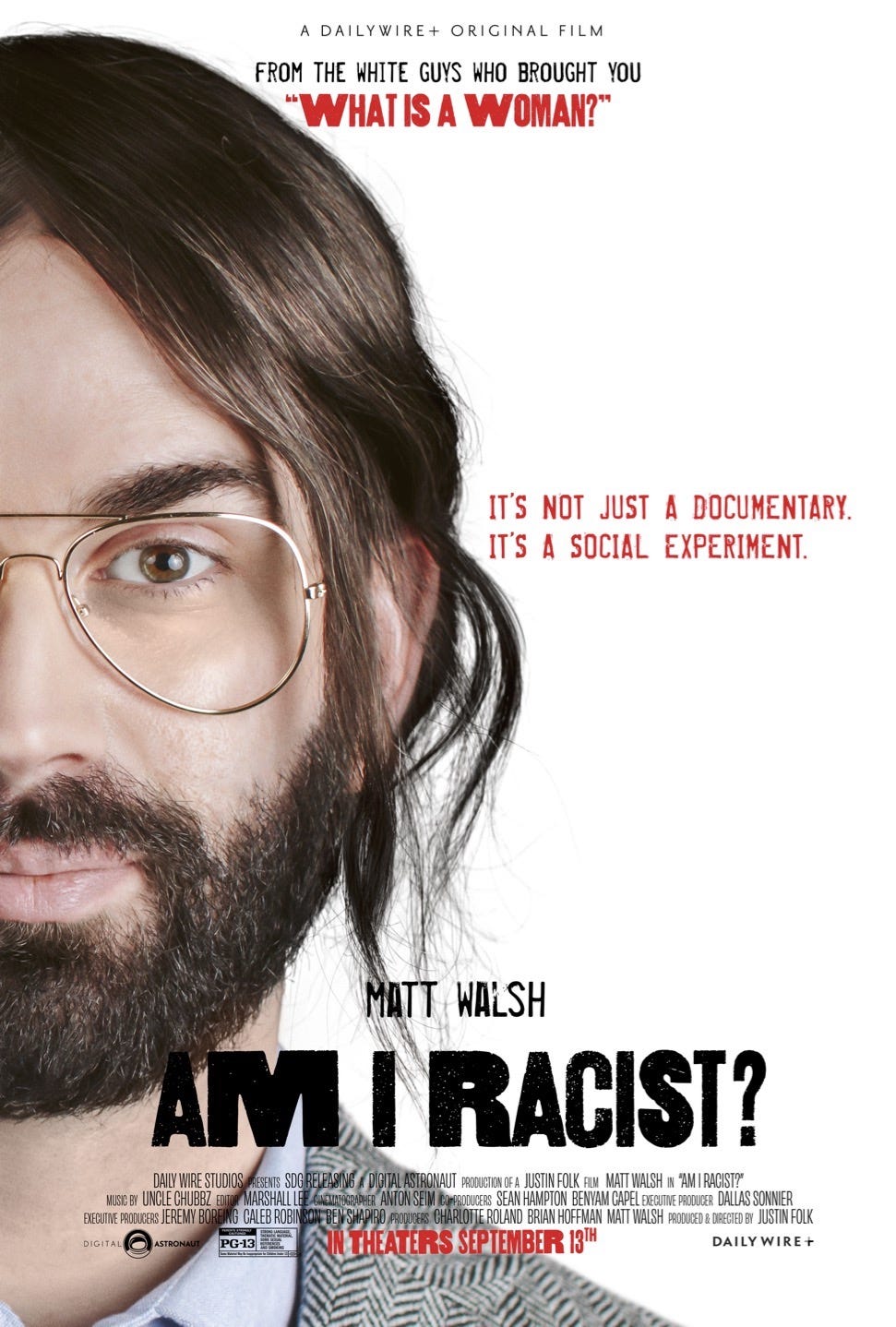Am I Racist?
I'm not Asking, but Matt Walsh's Brilliant and Witty Documentary Asks (and Answers) that Question.
There is a scene in Am I Racist?, Matt Walsh’s comic documentary which was released last weekend, in which multiple people berate an apparently senile and wheelchair-bound white man for his racism. It’s in the nature of the film that the scene generates audience laughter, but in other ways (like several other scenes in the film) it is a very poignant and uncomfortable demonstration of the radical venomousness of anti-white racism and how it has become mainstreamed in America. It’s one of several scenes handled with a deftness that elevated Am I Racist? beyond a film just looking for cheap laughs into what is a very sharply observed social commentary.
Am I Racist? follows around prominent conservative commentator and Daily Wire star Walsh as he goes undercover learning to be a DEI trainer and consultant while interviewing some of the most prom…
Keep reading with a 7-day free trial
Subscribe to The Course of Empire to keep reading this post and get 7 days of free access to the full post archives.


